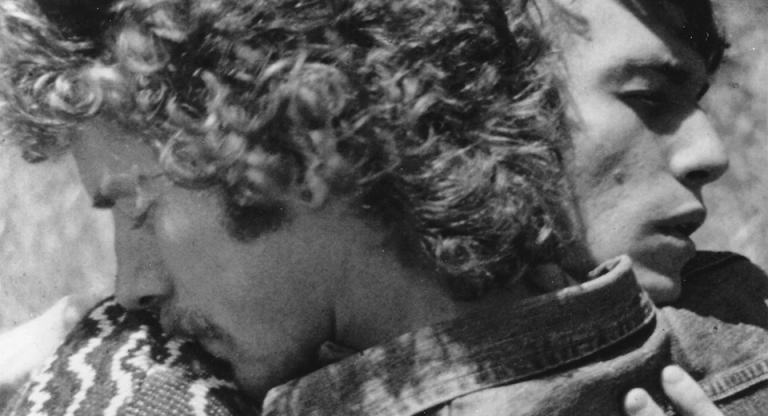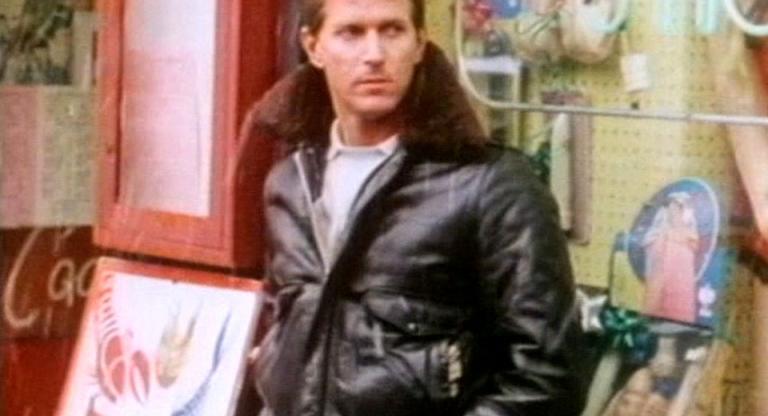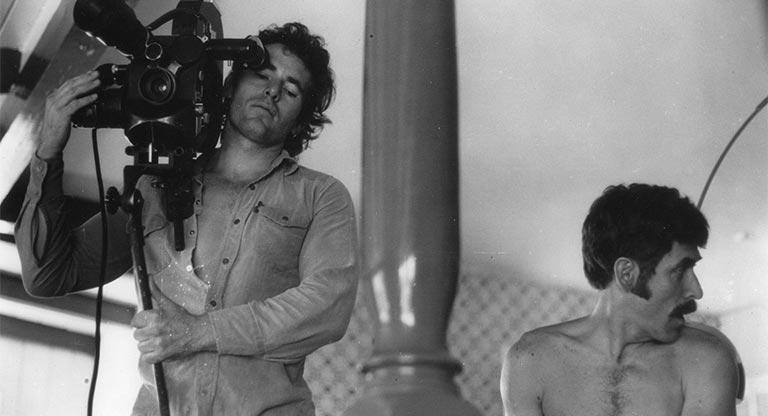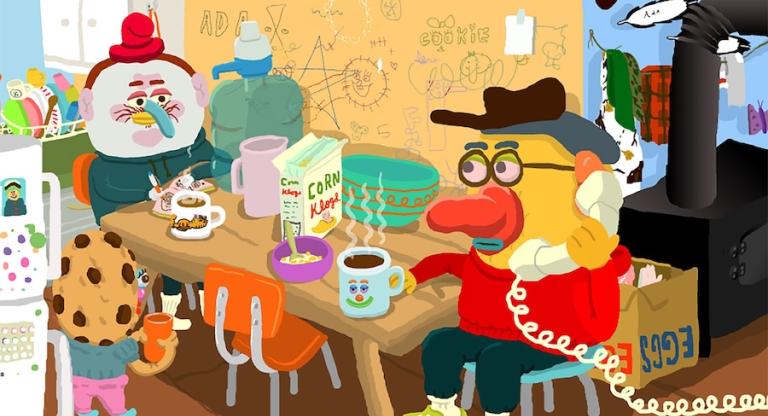It’s always interesting when films take on unintended new meanings by the time they hit theaters — and this is especially true of Arthur Bressan’s second narrative feature, Forbidden Letters. Shot in 1975 following the release of his debut, Passing Strangers, the film wouldn’t see release until Valentine's Day 1979, by which time the gay socio-political landscape had changed entirely. It’s a film about memory that instantly became nostalgic in the wake of Anita Bryant, the murder of Robert Hillsborough, the Briggs Initiative, and the assasination of Harvey Milk.
As with much of Bressan’s work, the film is semi-autobiographical. Passing Strangers star Robert Adams plays Larry, a young gay man trying to pass the time on the day that his older lover Richard (Richard Locke, the original daddy) is set to be released from prison. Unable to clear his head with casual sex, Larry reads through his letters to Richard — letters he could never send out of fear that an outing would cost Richard his parole and lead to a harsher sentence in isolation. The two aren’t exactly well-matched, as their friend Iris (Victoria Young in a substantial female role — a rarity for the so-called ‘all-male’ genre) notes, so the question remains: will the spark still be there when Richard gets out?
It’s a simple story, but what surprises about Forbidden Letters is the complex ways that Bressan uses it to explore memory, fantasy, and the psychological effects of the closet.
Much like in Passing Strangers, Bressan plays with the confines of the genre — the film has no shortage of sex — openly manipulating the audience’s emotions through his use of cinematic technique. The best example of this is a nightmare sequence in which Larry and Richard jack off in adjoining prison cells; they’re close, but apart. Shot on location at Alcatraz under false pretenses, the scene is genuinely haunting; its dizzying mix of discordant music, rapid editing, and expressionistic photography rendered in cold black-and-white managess to unsettle as well as arouse. It’s a far cry from the romantic, warmly-light color sex scenes of Larry’s memory.
Released to the gay porno circuit before being invited to play the 1980 edition of the Berlinale, the film straddles the adult and the mainstream in a way that holds up remarkably well after 40 years. It’s undoubtedly one of the best gay films of the 70s — hardcore or otherwise — and a title that deserves to be spoken of in the same breath as other reclaimed and legitimized works like Wakefield Poole’s Bijou or Fred Halsted’s L.A. Plays Itself. Thanks to the efforts of the Bressan Project, we can finally see the film as intended — the long-out-of-print VHS release was missing 20 minutes of narrative footage, nearly eliminating the Iris character in the process.
If you’d like to hear more about the film, the real-life incident that inspired it, and its lengthy production history, check out the latest episode of the Ask Any Buddy podcast.
Forbidden Letters is available for VOD exclusively from PinkLabel.TV





